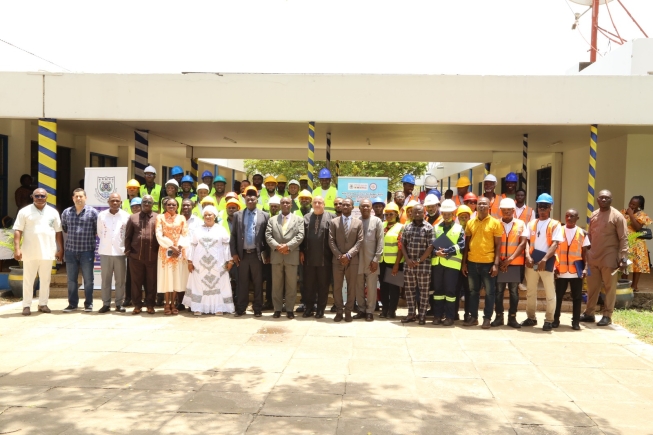By Ghana News
Copyright ghanamma

Ghana’s male-dominated heavy machinery industry is witnessing a shift as six women have successfully completed a 10-week Mobile Crane and Forklift Training Programme, signalling new opportunities for gender inclusion in technical and vocational education and training (TVET).
The women, trained under the joint initiative of the National Association for Heavy-Duty Equipment Operators Ghana (NAHEOG) and the Regional Maritime University (RMU), were part of a 50-member class drawn from West and Central Africa.
Their graduation has been hailed by industry leaders as evidence that more women are breaking barriers in non-traditional career paths.
The NAHEOG President, Mr Dominic Kofi Eyiah, described their achievement as transformative. “They are not only trained professionals now, but also role models who will inspire other young women to consider careers in technical and industrial fields,” he said.
He stressed that operators of heavy-duty machinery play a critical role in shaping Ghana’s economy, adding: “You are the silent builders of progress—driving the machines that shape our cities, connect our communities, and power our economy.”
The development comes at a time when Ghana and other African countries are placing greater emphasis on TVET as a driver of economic growth. At the ceremony, Dr Issahaque Munawaru, representing Deputy Minister of Education, Clement Apaak, urged stakeholders to expand technical training opportunities for women, describing TVET as “crucial to Africa’s economic transformation.”
The Acting Vice Chancellor of RMU also appealed for increased government investment in modern equipment to make such training more accessible and affordable. He argued that equipping more young women with technical skills would not only help address labour shortages but also contribute to equity in the workplace.
Beyond training, NAHEOG is pushing reforms to strengthen regulation and efficiency in the industry. Mr Eyiah announced plans for an Operator Biometric Authorisation System (OBAS), which would link heavy equipment operation to the biometric ID of certified professionals.
He also highlighted the association’s recent advocacy successes, including stopping a proposed 50 per cent rise in charges at ports and securing temporary exemptions for crane operators under L.I. 2404.



